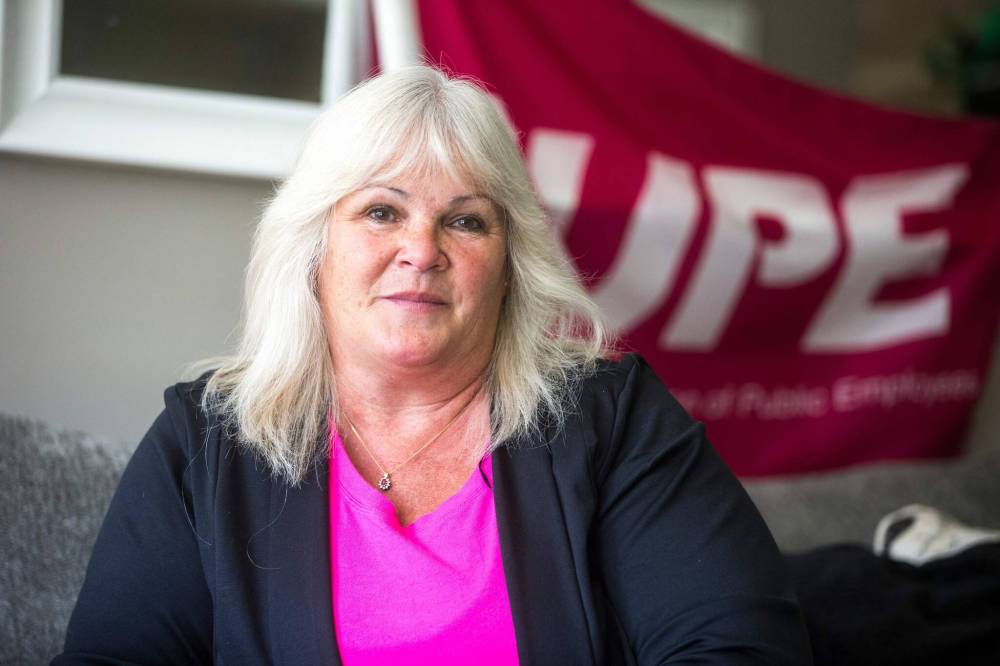Home care workers file grievance over perceived contract delays
Advertisement
Read this article for free:
or
Already have an account? Log in here »
To continue reading, please subscribe:
Monthly Digital Subscription
$0 for the first 4 weeks*
- Enjoy unlimited reading on winnipegfreepress.com
- Read the E-Edition, our digital replica newspaper
- Access News Break, our award-winning app
- Play interactive puzzles
*No charge for 4 weeks then price increases to the regular rate of $19.00 plus GST every four weeks. Offer available to new and qualified returning subscribers only. Cancel any time.
Monthly Digital Subscription
$4.75/week*
- Enjoy unlimited reading on winnipegfreepress.com
- Read the E-Edition, our digital replica newspaper
- Access News Break, our award-winning app
- Play interactive puzzles
*Billed as $19 plus GST every four weeks. Cancel any time.
To continue reading, please subscribe:
Add Free Press access to your Brandon Sun subscription for only an additional
$1 for the first 4 weeks*
*Your next subscription payment will increase by $1.00 and you will be charged $16.99 plus GST for four weeks. After four weeks, your payment will increase to $23.99 plus GST every four weeks.
Read unlimited articles for free today:
or
Already have an account? Log in here »
Hey there, time traveller!
This article was published 09/01/2023 (1065 days ago), so information in it may no longer be current.
The union representing Manitoba home care workers is questioning a delay in improving working conditions, after a new contract for health support employees was agreed to in September.
Improvements — such as promised increases to shift premiums, vacation scheduling, and coffee breaks — still haven’t been implemented, Debbie Boissonneault, president of Canadian Union of Public Employees Local 204, stated in a release Monday.
CUPE 204 represents 14,000 health-care support staff in the Winnipeg Regional Health Authority and Shared Health, about 1,500 of whom are home care workers.

MIKAELA MACKENZIE / FREE PRESS
The current contract is in effect for 2017-24 and took years to negotiate, Debbie Boissonneault said.
The new contract was reached in September, but when the union filed a grievance and questioned why employees still haven’t seen all of their pay increases or the ability to take coffee breaks, representatives were told employers have 120 days to implement changes, as per the new collective agreement, said Boissonneault.
That deadline is at the end of next week.
The union is questioning why it has taken so long to implement changes that benefit employees, while changes that allow employers to mandate health support staff to work overtime were already brought into effect.
The current contract is in effect for 2017-24 and took years to negotiate, Boissonneault said. “Everything that we wanted for the membership, that we fought hard for, still hasn’t been implemented.”
Retroactive salary adjustments and the signing bonus under the new agreement were processed in early December, “well within the 120-day time frame,” a Shared Health spokesperson stated Monday, adding the remaining parts of the agreement will be completed within that interval.
Individual staff received a lump sum payment according to the terms of their employment after the pay adjustments were completed last month, Shared Health said. The collective agreement affects roughly 18,000 health support staff in Manitoba.
“The agreement followed negotiations that worked to amalgamate more than 100 previous collective agreements across a variety of payroll systems. This is a unique and complex implementation that will be concluded within the 120 (-day) post-ratification time frame that was negotiated and agreed to by the parties,” Shared Health’s statement reads in part.
“Work is underway to implement the remaining components of the agreement and we remain confident this work will be complete within the negotiated time frame.”
More home care workers need to be hired and retained in Manitoba, Boissonneault said, estimating an additional 500 to 600 are needed.
Health Minister Audrey Gordon was asked during an unrelated news conference Monday what Manitoba needs to do to bring in more home care workers.
The health minister responded by reiterating the government’s $200-million pledge in November to hire 2,000 additional health-care workers, many of whom, she said, will be working in home care.
“We’re going to continue to deliver on initiatives and funding to ensure that we have a capacity that can serve Manitobans right in their homes.”
Gordon worked on the WRHA’s home care program before entering politics.
“It’s a program that’s near and dear to my heart and I want to see it thrive,” Gordon said, adding she wants to see Manitobans be able to “age in place” and get the care they need at home.
“We are very committed as a government to ensuring that’s done.”
katie.may@freepress.mb.ca

Katie May is a general-assignment reporter for the Free Press.
Our newsroom depends on a growing audience of readers to power our journalism. If you are not a paid reader, please consider becoming a subscriber.
Our newsroom depends on its audience of readers to power our journalism. Thank you for your support.


